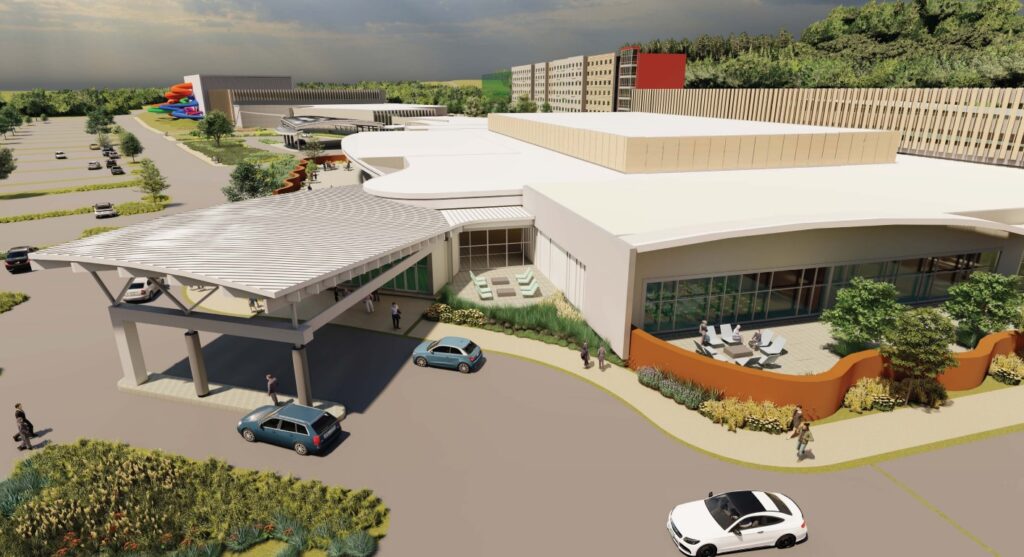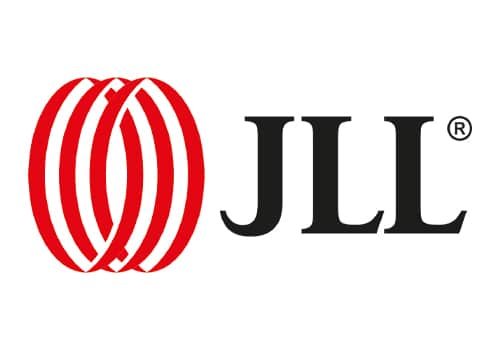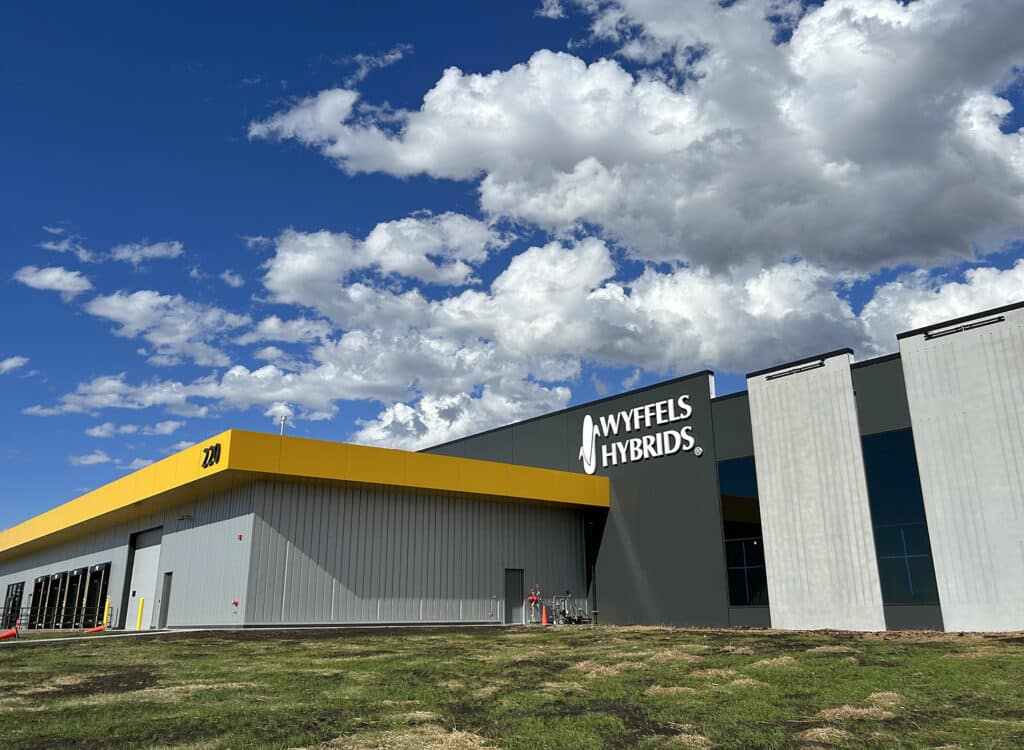Building up a legacy
Jim Hubbell returned to Des Moines in the 1970s to revive a slumbering real estate giant

KENT DARR Dec 3, 2015 | 12:00 pm
15 min read time
3,580 wordsBusiness Record Insider, Real Estate and DevelopmentJim Hubbell has presided over the transformation and second boom of a family business that has been a household name in Iowa for more than a century, but it’s unlikely you’ll get him to take credit for its metamorphosis. He’s far too soft-spoken and reserved for such bold statements.
It’s easy to forget how Hubbell Realty Co. got to where it is today: a company that in recent years has poured $237 million into downtown development alone.
Its footprints today also are seen in the Des Moines suburbs and as far away as Florida. But until 1983, Hubbell Realty was little more than a landlord, restrained by severe terms of a trust established by patriarch Frederick M. “F.M.” Hubbell, who died in 1930. The trust preserved the fortune that F.M. built, but it did little to feed the entrepreneurial spirit that characterized his life.
The idea was to maintain and build on the wealth F.M. Hubbell amassed through real estate holdings and other business deals over a remarkable career that began with the purchase of Woodbury Country farmland in 1856.
Under the terms of the trust, heirs were expressly forbidden from taking on debt to finance new ventures for a company that already boasted considerable real estate holdings in 1930, not to mention other aspects of F.M. Hubbell’s legacy that included the establishment of Des Moines Water Works, a railroad line and the first life insurance company formed west of the Mississippi River.
All of that, and more, is part of F.M. Hubbell’s story (see p. 15). However, since 1983, it has been the story of his great-great-grandson, Jim, and the crew of “implementers” who have come on board over the last three decades and set their shoulders to building one of the largest real estate companies in Iowa.
A return to Des Moines
James W. “Jim” Hubbell III was fresh out of college and working in commercial mortgage lending when his father made an offer in the early 1970s that amounted to an opportunity too good to ignore. At the time, his dad, James Hubbell Jr., was a trustee of F.M. Hubbell’s trust and chairman of Hubbell Realty. He also was president and CEO of Equitable Life Insurance Company of Iowa, the firm founded by his great-grandfather.
Jim Hubbell Jr. and other trustees of the F.M. Hubbell trust were preparing for the dissolution of the trust, still 10 years away.
They wanted to “try a few things and still have time to unravel” the trust, Jim Hubbell III said.
At the time, 1973, he was a bit of a stranger in town. At age 8, he went off to preparatory school in Massachusetts, then attended Trinity College in Hartford, Conn.
He was working as a commercial mortgage lender when he was asked whether he would consider returning to Des Moines.
In a sense, his family needed him. In the next 10 years, the Hubbell family wealth that was stored in the trust would be available for distribution. Among the trust’s holdings was F.M. Hubbell, Son and Company Inc., which held the Hubbell real estate assets. By 1983, trustees had to decide whether to separate the real estate operation as a self-sustaining enterprise, find a buyer or liquidate.
Jim Hubbell Jr. led a group of trustees who did a 10-year study on how to divest the trust. They evaluated assets, weighed options and pondered a range of problems.
“It was difficult to determine the one-thirteenth share of properties. It was easy to do with the cash, obviously,” Jim Hubbell III said. “The trustees had to figure out what was going to happen.”
When the trust was dissolved, roughly $200 million in assets were distributed. The real estate operation became a full-blown property manager with ambitions to become something much larger. By 1991, the company would be formally called Hubbell Realty Co.
Also in the 1970s, the city of Des Moines was going through a period of redevelopment downtown. Old buildings were coming down, and new buildings were going up. Jim Hubbell Jr. wanted to be part of that process. He chaired the Greater Des Moines Committee, a group of business leaders pressing for development of a theater, hotel and plaza.
At age 25, Jim Hubbell III had some second thoughts about whether to return to Des Moines. He was working for the James W. Rouse Co., at the time a highly regarded development firm and mortgage banker that specialized in planned communities and marketplace-style shopping centers — think Faneuil Hall Marketplace in Boston. The company was the darling of urban planners. Rouse’s approach left an impression, “even though I was just doing mortgage lending,” Hubbell said.
And in 1973, Hubbell Realty was not at the forefront of much of anything, just holding and managing property. Jim Hubbell III would be the lone employee, and, for the most part, he would be returning to a city that he had lost touch with.
Still, his father held a special affection for Des Moines, and he was determined to leave an imprint. In 1972, Jim Hubbell Jr. had triggered the first development an area that would come to be called RiverPoint, more than 100 acres located between the Raccoon River and Cherry Street.
“I was a kid. I was young and inexperienced,” Hubbell said. “But I thought, OK, I can do this.”
Because of the restrictions of the trust, Jim Hubbell III was a property manager with little else on his plate at the company.
“That means you just keep finding another tenant,” he said.
He was too preoccupied with building a company to be intimidated by his great-great-grandfather’s almost larger-than-life legacy. His main exposure to F.M. Hubbell was seeing the patriarch’s signature on deeds, some of which were more than 90 years old.
Given that he was a stranger to many of those tenants when he returned to Des Moines, Hubbell set about introducing himself. He followed what appears to be a long-standing family habit.
“You just get busy,” he said about his approach to getting to know tenants and the Des Moines business community.
Many of the tenants had been under leases that were to run “until the trust expired,” and others were told that the buildings they rented probably were going to be torn down because “we don’t think your use will be appropriate.” Most of those buildings were in RiverPoint.
Hubbell also got an up-close look at the working of the business community, especially when the topic was downtown development, by attending meetings with his father, who “just loved downtown.”
Hubbell recalled he was learning about politics and power at a time when development battles were won and lost in the political trenches. Those days are gone, he said. The fights now focus on regulations.
He watched as the company took the occasional licking.
“It’s just part of the deal. … If you’re going to be in the arena and you have a lot of assets, you’re going to get shot at,” Hubbell said.
He was a wide-eyed bystander as business and government titans such as John Ruan, Richard Wilkey, Bill Knapp and his father debated the city’s development future.
Ruan would lose his temper. Wilkie would “fight” for a cause.
“I would just sit there open-mouthed and say, ‘Wow, this is pretty cool,’” Hubbell said.
Another influential player was the late Bob Mickle, the city planning director, who could play both advocate and adversary.
“Give him 10 minutes, he would have 100 ideas,” Hubbell said. “He knew the city. He knew the rules. He knew how things worked.”
The trust expires; Hubbell Realty can breathe
Hubbell was getting a taste of commercial development in the early 1980s, just prior to the expiration of the trust.
His father pledged that Equitable would preside over the construction of the Locust Street Mall at 700 Locust St. to provide parking for the Des Moines Marriott hotel and Younkers department store, which was owned for several years by Equitable.
With the city of Des Moines pushing urban renewal projects, Hubbell Realty took on the development in 1981 of Capitol Center on city-owned land that covered more than two blocks along East Court Avenue, the first redevelopment project in what later became known as the East Village.
That project “gave us the bug for more commercial projects,” Hubbell said.
When the trust expired in November 1983, Hubbell Realty was a going concern, beholden to shareholders who could pull their stakes in the company at any time. Hubbell was named president, and he had more big projects in mind.
One was the Capital Square redevelopment at Fourth and Locust streets. Hubbell Realty entered the bidding and figured it was sure to land the deal.
“We were full of ourselves,” Hubbell said. The company lost out to Draper & Kramer Inc. of Minneapolis.
The company also found itself the target of some fierce opposition from community activists, who figured that with its inherited wealth and legacy of influence, the company was winning more development battles than it was losing.
The big project that the company envisioned would take a bite out of two blocks on the north side of Walnut Street, from Fifth Avenue to Seventh Street.
Hubbell learned the many layers of ownership of downtown properties — and the quirks of some of the owners.
Hubbell Realty owned some of the property along Walnut and acquired the rest, including the site of the former Katz Drug Store and an office building that had been home to the Davis Brown Law Firm.
One of the buildings was owned by a woman who was getting $2,000 a month rent on a building worth about $200,000, Hubbell said. She held out for top dollar, saying, “You need to pay me enough that I feel bad about the amount I’m getting.” he recalled.
All of that dealmaking was to create an iconic structure that would provide a center of activity for the skywalk system. Hubbell Realty, Equitable and Iowa Power and Light Co. (now MidAmerican Energy Co.) were the partners for an office skyscraper that would sit atop a retail center. The involvement of Iowa Power and Light was a simple matter of creating customers for the utility.
“At the time, Iowa Power and Light was active in real estate. It was involved in a lot of projects for economic development that was good for the community and created customers,” Hubbell said. The company “lived and died on how Central Iowa developed.”
The 1980s were busy times, and the major players in downtown development were not shy about sinking a portion of their fortunes into projects. Des Moines Development Corp., formed in 1961, was made up of individuals and their companies located downtown who put hard dollars into the nonprofit. It was the predecessor of Des Moines Redevelopment Corp., a like-minded organization with no real cash, just promises to deliver cash.
Des Moines Development “was good networking, but it also had a lot of money,” Hubbell said.
Hub Tower project sent a message
To pull off the Walnut Street project, Hubbell Realty needed a construction manager. A member of a search committee called Iowa State University’s College of Engineering and asked for good candidates. The woman on the other end of the telephone conversation was a relative of Rick Tollakson, who at the time was building ethanol plants for a Cedar Rapids company.
Tollakson was a “pipes and metal buildings” guy who had no experience working with architects or constructing office and retail buildings. He did carry an engineering degree from Iowa State and a master’s degree in business administration from the University of Iowa.
He was a “very smart” guy who learned quickly. Three years and $48 million in construction and development costs after he was hired in 1983, Hub Tower and Kaleidoscope at the Hub were open and changing the face of the downtown skyline.
The project “expanded our world,” Hubbell said. “We showed people that we could do big things. … Hubbell could build, finance and manage.” On the other hand, the project “took a long time to be successful. It took too long.”
Boom and bust and a major transition
The Hub Tower project also was the beginning of a transition for Hubbell Realty from a commercial developer to a residential developer.
Although the company was building out RiverPoint, a process that started in the 1970s and proceeded through the early 1990s at a pace of about a building every year or 18 months, Hubbell Realty was listening to downtown advocates who believed the turning point for the area would come with more residents.
“In conversations with (former Des Moines City Manager) Rick Clark, and with the City Council, we would say that retail doesn’t work without people. We used to say everything is better if you get people downtown,” Hubbell said.
The shift to residential was slowed by succeeding events. The recession that hovered over the farm crisis of the ‘80s made it difficult to obtain financing. Hubbell recalled stretches when there was no business coming through the door.
“The farm crisis was a killer,” he said. “There was an eight- to 12-month period when we collected no fees. Business just stopped. Everybody knew it was bad. Those were scary times.” Hubbell said he can recall looking at bills and deciding which ones to pay and which ones to float.
The succeeding boom years prompted the company to look at markets outside Greater Des Moines.
“We decided we would go one flight away. We didn’t want to change planes,” Hubbell said. “Those were heady times.”
He pointed out that big developers were looking for opportunities across the country.
“It was a period of tremendous overbuilding in commercial, then the bubble burst,” Hubbell said.
Hubbell Realty bought a building at Nicollet Mall in Minneapolis, then the city “overbuilt overnight.” It was a bad move. The city soon added five buildings of more than 1 million square feet.
“We had tenants with no base rent who were just paying taxes, insurance, cleaning. Other landlords did that but also provided money for tenant improvements,” Hubbell said. The company got out of the market.
The bubble burst with the savings and loan crisis of the early 1990s.
Prior to that, Hubbell said, “Hubbell Realty could borrow at 90 percent of appraised value. There was still business to do. Then regulators said they would loan at 60 to 75 percent. We had to come up with lots of real cash.” That put a strain on finances.
“We had to decide on every piece of property whether we could sell it or whether we should sell it,” Hubbell recalled. “We would go to our accounting folks and say, ‘We have to come up with X millions of dollars. Which ones can we get done?’ The same thing happened to Regency 10 years later.”
Before the Regency companies went out of business in 2008, Hubbell Realty officials were watching their every move. Regency was the largest home builder in Iowa at the time, and it had branched into commercial development. The folks at Hubbell wanted to know whether Regency would survive. It did not. Hubbell Realty wound up buying several Regency projects that had been taken over by lenders.
Hubbell Realty had turned toward the residential market in the late 1980s. Its purchase of First Realty in 1990 was a “turning point,” Hubbell said.
“We learned a lot about the residential business in a short time,” he said. The company found out that selling houses might not be its strong suit. First Realty eventually was sold to Iowa Realty Co. Inc.
Hubbell Realty entered land development, but it tired of the slow turnaround time between developing lots and having other construction companies build and sell homes on them.
The company entered into a partnership with another home builder to construct 25 homes a year. Over time, the partners were bought out and Hubbell Homes was created.
Creating its own home building company represented a change in thinking at Hubbell Realty. At first, the company thought building houses “was not good for us.” However, the company found out that it could react quickly to changing market demands.
“We found out that we can do this. We have become very nimble,” Hubbell said. So nimble that the company has residential projects in Des Moines and virtually every suburb. It was the first major developer to create sustainable neighborhoods, which it calls conservation communities.
Downtown living
In 2006, Hubbell Realty entered the downtown housing market by converting the Hubbell Building at 904 Walnut St. to apartments. When it was constructed in 1913, the building was the tallest in Des Moines, and it served for years as the center of family operations.
Using state and federal incentives, “we turned it into something beneficial,” Hubbell said.
The company then shifted its focus to Court Avenue. It bought the historic Spaghetti Works building and launched another rehabilitation that brought apartments, condominiums and restaurants to Fourth Street and Court.
Since that time, the company has spent $237 million on downtown residential development projects.
It has found a niche in the construction of for-sale townhouses, and in addition to renovations, it is building new apartment units.
The Bridge District is planned as neighborhood east of the Des Moines River on former warehouse and industrial land. Hubbell Realty plans new apartments near the Des Moines Social Club, and it is mulling the development of the former Riverfront YMCA property along the Des Moines River.
Hubbell said residential development has become the company’s focus. It has quicker turnaround than commercial, and rental projects provide flexibility in terms of leases and rents. While commercial leases typically cover several years at fixed rates, apartment rents generally change on an annual basis. It is often said that Hubbell created the 99-year commerical lease.
The company has included commercial spaces in some developments, both downtown and in the suburbs, but commercial development usually is an afterthought, Hubbell said.
Can we call this a dynasty
When asked recently whether he felt as though he had presided over the creation of a real estate dynasty, Hubbell replied, “What’s a dynasty?”
Doesn’t matter. Hubbell doesn’t believe dynasty fits the company that carries the family name. Besides, he doesn’t like the word.
What he does enjoy, 12 years into retirement, is watching the company continue to evolve. It is quick, “nimble,” as he would say, and its crew is made up of “implementers.” They are employees who don’t require a lot of supervision. They are given a task, and they find a way to get it done.
If things don’t work out, they find a way to work out the problem.
“We say we can come up with great real estate solutions, but we can also know how to get out of real estate problems,” said President and CEO Rick Tollakson.
Even with another generation of Hubbells working at the company, dynasty just doesn’t seem to fit.
Andrew Hubbell, Jim’s son and F.M.’s great-great-great-grandson, has worked in the company’s land development division for the past four years.
Like his dad, his uncle and generations before them, Andrew was sent off to preparatory school before attending college. He is a graduate of the University of Vermont. Before returning to Greater Des Moines, he spent 10 years guiding rafting trips on the Colorado River and training dogs for the Iditarod Trail Sled Dog Race across Alaska.
He was able to make a living at those jobs and others. Working for the company was not a “fallback” if things didn’t work out with other jobs.
He is not looking over his shoulder at his dad’s accomplishments or those of other Hubbells.
However, “you do want to continue to make everyone proud,” Andrew Hubbell said.
Will he ever lead the company? That’s a tough question.
“I started late, and there is a lot of talent here,” he said.
He does like the work, though.
“I’m most passionate about the fact that I’m fortunate enough to work for a business that has been a family business for a long time,” he said.
Memories of two business icons: Weitz & Ruan
The influence of John Ruan and Fred Weitz stand out in Hubbell’s memories.
“Ruan’s interest was always downtown. He put his money in up front. If he had the idea, he would put his money in right up front and then he would go sell it,” Hubbell said. (On a personal note, Hubbell also has good memories of quail hunting with his dad, Ruan and his son, John Ruan III, who currently sits on the Hubbell Realty executive board.
Weitz devised a way on relatively short notice to change the initial plans for Martin Luther King Jr. Parkway to be a skyway that led drivers above and beyond downtown to a conventional, land-bound street that now helps travelers find their way into downtown.
Ruan, Weitz and others “were trying to do what was the best for the long-term interest of the city,” Hubbell said. “They were smart guys, and they didn’t have a dog in the hunt.”
It should be noted that the Ruan family bank, Bankers Trust Co., will be the lead lender, trustee and a kind of short-term owner of the Iowa Events Center Hotel, another game-changing project that has been long sought by downtown leaders. The construction company that bears the Weitz family name, but no longer has a connection with the founding family, will be the construction manager.









